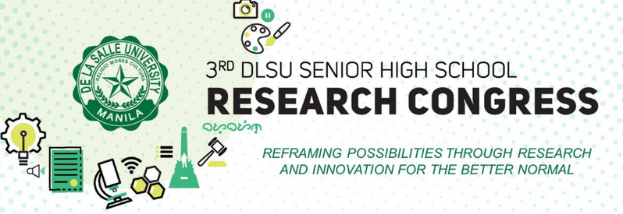Document Types
Paper Presentation
Research Theme (for Paper Presentation and Poster Presentation submissions only)
Sustainability, Environment, and Energy (SEE)
School Name
De La Salle University Integrated School, Manila
Start Date
30-4-2021 10:00 AM
End Date
30-4-2021 12:00 PM
Abstract/Executive Summary
Improper solid waste management of fish waste contributes to the pollution leading the Comprehensive National Fisheries Industry Development Plan to declare that the Philippine aquaculture industry is unsustainable. The utilization of waste promotes a circular economy, whereby products are reused indefinitely in order to eliminate waste and boost sustainability in the fish industry. This study consists of surveys and interviews with fish vendors to determine the most efficient methods of reusing and disposing fish waste, and which of these are feasible within the Philippines, specifically Metro Manila. The data gathered could be useful in the creation of policies recommending ways on repurposing fish waste and promoting a circular economy. From the responses gathered, wet market fish stalls in Metro Manila produce 1.8 tons of fish waste a year, wherein the majority claimed that it was managed by being collected by garbage collectors and segregated; however, the protocols and practices of the interviewed wet markets were inconsistent. As implementation of protocols are not strictly enforced, current waste management methods remain ineffective in reducing solid waste. Therefore, educating those in the fish industry, enacting methods to recycle fish waste, and recommending them to LGUs would prove effective in developing a circular economy while providing another source of income for the fish industry.
Keywords
fish waste; waste management; valorization; sustainability; wet market
Initial Consent for Publication
yes
Fish waste as a resource: An approach to lessen the impact of improper solid waste management in the Philippines
Improper solid waste management of fish waste contributes to the pollution leading the Comprehensive National Fisheries Industry Development Plan to declare that the Philippine aquaculture industry is unsustainable. The utilization of waste promotes a circular economy, whereby products are reused indefinitely in order to eliminate waste and boost sustainability in the fish industry. This study consists of surveys and interviews with fish vendors to determine the most efficient methods of reusing and disposing fish waste, and which of these are feasible within the Philippines, specifically Metro Manila. The data gathered could be useful in the creation of policies recommending ways on repurposing fish waste and promoting a circular economy. From the responses gathered, wet market fish stalls in Metro Manila produce 1.8 tons of fish waste a year, wherein the majority claimed that it was managed by being collected by garbage collectors and segregated; however, the protocols and practices of the interviewed wet markets were inconsistent. As implementation of protocols are not strictly enforced, current waste management methods remain ineffective in reducing solid waste. Therefore, educating those in the fish industry, enacting methods to recycle fish waste, and recommending them to LGUs would prove effective in developing a circular economy while providing another source of income for the fish industry.


